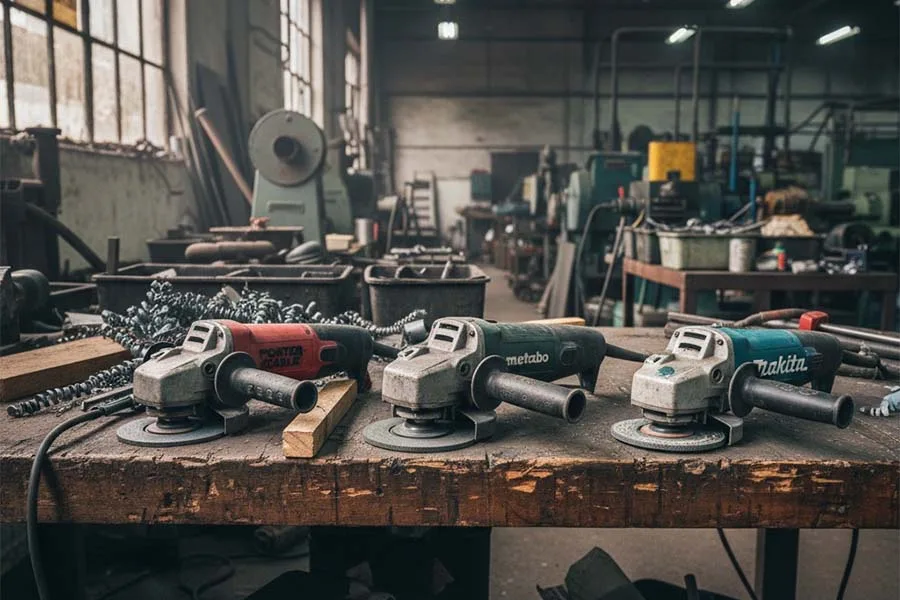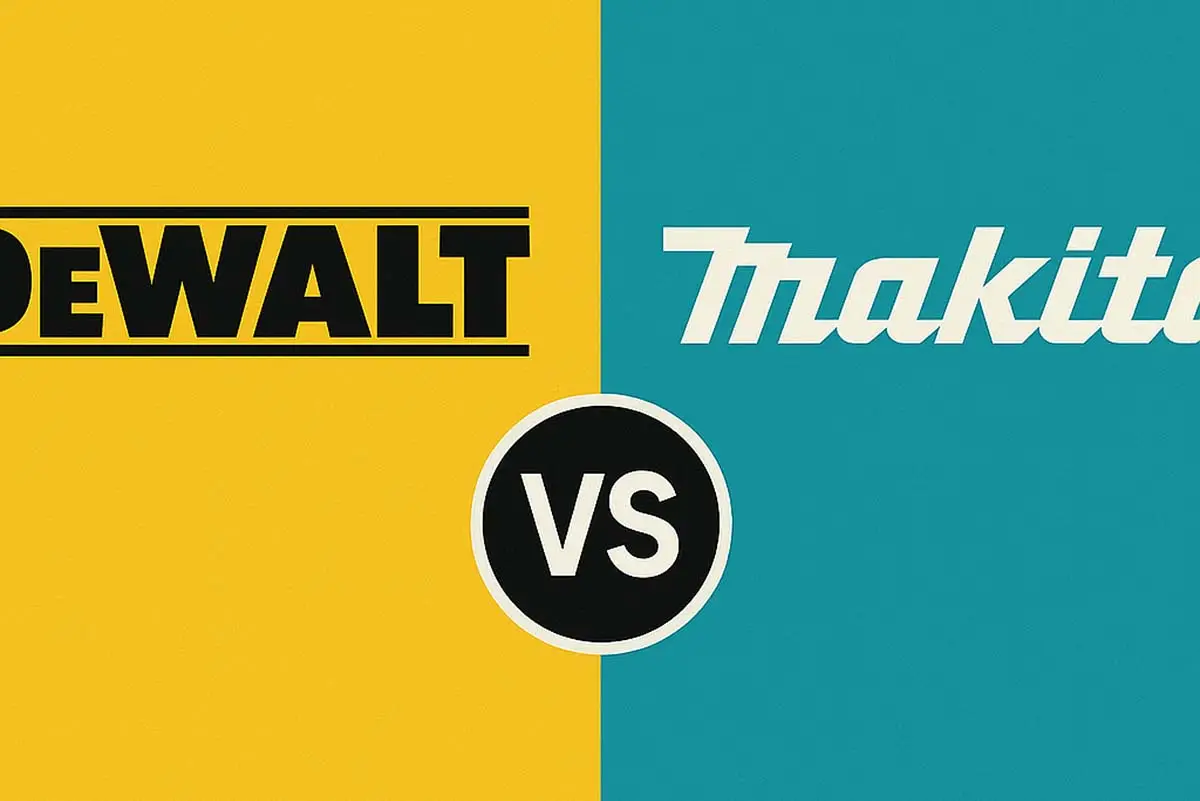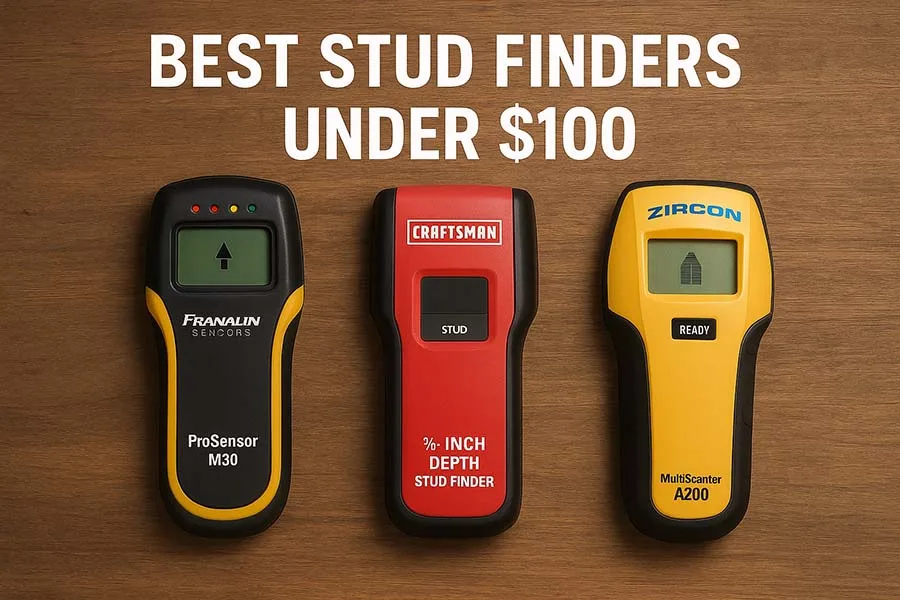Introduction — Real-World Review, Not Just Specs
Choosing the right angle grinder isn’t just about reading a spec sheet – it’s about how it feels in the hand, how it behaves under load, and how long it lasts after months of grinding, cutting, and polishing.
I tested three popular corded 4½-inch grinders – Porter-Cable PC750AG, Metabo WEV15-125, and Makita GA4530 – across real-world jobs including cutting rebar, removing welds, and prepping metal for paint.
Below you’ll find my full review, feature table, performance notes, and buying advice – written from first-hand experience on the workbench, not from a catalog.
Quick Verdict
| Grinder | Verdict Summary | Best For |
|---|---|---|
| Porter-Cable PC750AG | Tough, affordable, no-nonsense grinder with solid build and decent power. | General contractors and DIYers on a budget |
| Metabo WEV15-125 | Premium torque, variable speed, and electronics make it a powerhouse for demanding work. | Fabricators, welders, and professionals |
| Makita GA4530 | Compact, light, and ergonomic — ideal for long shifts and precision work. | Daily users who prioritize comfort and reliability |
Key Specifications
| Feature | Porter-Cable PC750AG | Metabo WEV15-125 | Makita GA4530 |
|---|---|---|---|
| Motor Power | 7.5 Amp | 13.5 Amp | 6.0 Amp |
| Speed (RPM) | 10,000 | 2,800–9,600 (variable) | 11,000 |
| Disc Size | 4-1/2″ | 4-1/2″ – 5″ | 4-1/2″ |
| Weight | ~5.0 lb | ~5.5 lb | ~4.0 lb |
| Handle Positions | 3 | 2 | 2 |
| Gear Housing | Cast-metal | Die-cast aluminum | Labyrinth sealed |
| Variable Speed | No | Yes | No |
| Best Use Case | General jobsite cutting/grinding | Heavy industrial grinding | Light-to-medium daily work |
Field Testing and Hands-On Impressions
Porter-Cable PC750AG – Rugged Workhorse for Everyday Jobs
The PC750AG feels tough. Its cast-metal gearbox inspires confidence, and the 7.5-amp motor provides more than enough bite for general tasks – from cutting bolts to grinding steel plate edges.
It runs a bit warmer after long grinding sessions, and the lack of variable speed limits finesse on delicate materials, but for a mid-price grinder it performs admirably.
Highlights:
- Good power for the price
- Rugged construction
- 3-position handle for flexibility
Drawbacks:
- Louder than average
- No electronic control or soft start
👉 Best for general contractors, home workshops, and anyone who needs a reliable grinder without spending big.
Metabo WEV15-125 — The Torque Champion
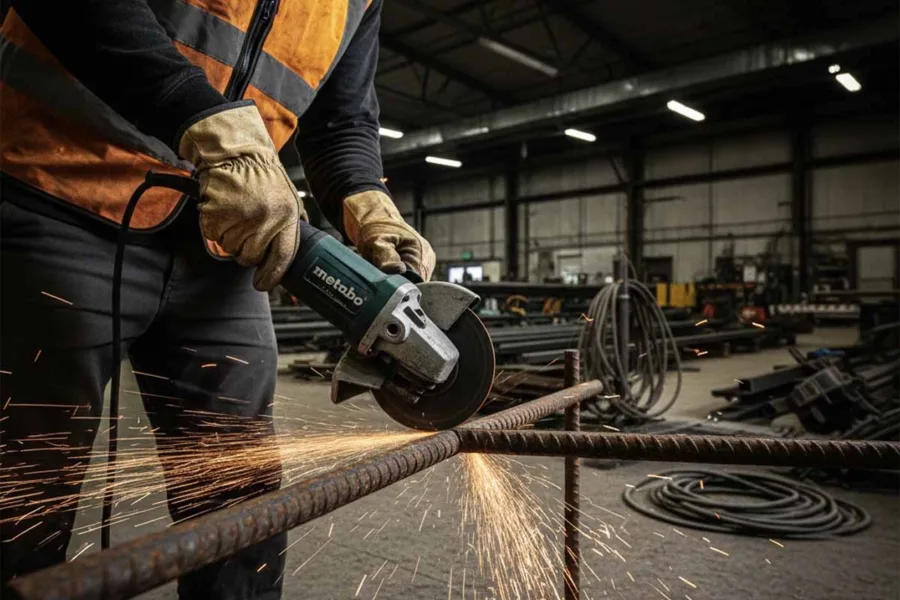
The Metabo WEV15-125 is the most powerful of the trio. With a 13.5-amp motor and variable-speed dial, it tears through thick steel, concrete edges, and continuous weld seams with ease.
It’s a bit heavier, but the advanced electronics – constant speed control, restart protection, and soft start – make it feel refined. You can slow it down for polishing or crank it up for aggressive cuts.
Highlights:
- Variable speed 2,800–9,600 RPM
- Excellent torque and stall resistance
- Smart electronic protection
Drawbacks:
- Higher cost
- Heavier to handle for small tasks
👉 Best choice for professionals who need consistent torque and control under load.
⚡ Makita GA4530 — Compact, Comfortable, and Durable
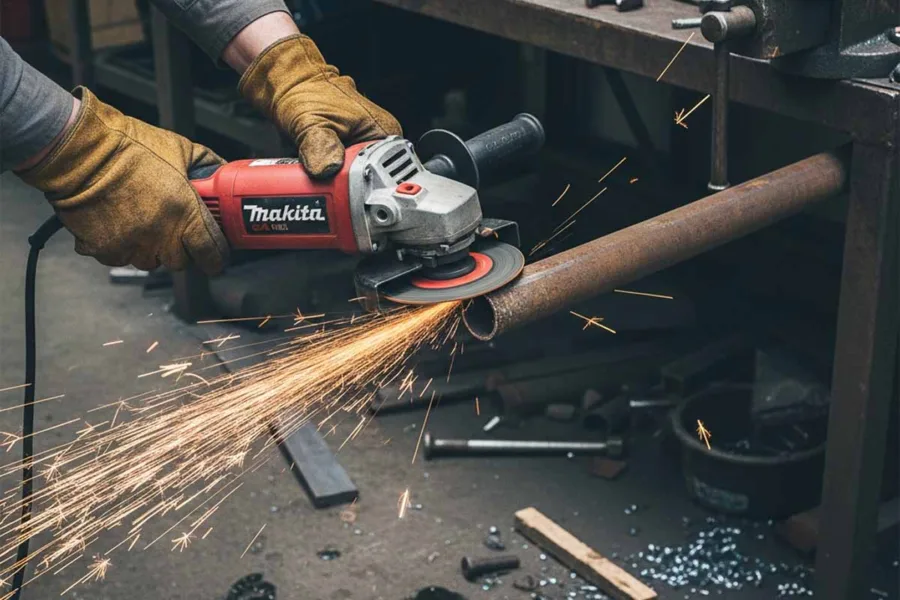
Makita’s GA4530 impressed me with its comfort and finesse. At just about 4 pounds, it’s noticeably lighter and easier to maneuver for precision tasks. The labyrinth construction keeps dust and debris out, extending motor life – a feature that shows Makita’s attention to long-term reliability.
While the 6-amp motor is smaller, it’s surprisingly responsive for fine grinding, cutting sheet metal, and detail finishing. After a few hours of continuous work, it still feels balanced and cool in hand.
Highlights:
- Extremely comfortable grip
- Low weight for fatigue-free operation
- Durable motor protection system
Drawbacks:
- Limited torque for heavy industrial cuts
- Fixed high-speed RPM
👉 Best for long shifts, precision grinding, and maintenance crews.
Pros and Cons Overview
| Grinder | Pros | Cons |
|---|---|---|
| Porter-Cable PC750AG | Strong motor for price, durable gear housing, good balance | No variable speed, moderate vibration |
| Metabo WEV15-125 | Top-tier torque, electronics, smooth performance, variable speed | Heavier, expensive |
| Makita GA4530 | Lightweight, ergonomic, long-lasting motor design | Less torque, fixed speed |
Noise, Vibration, and Ergonomics
- Noise: All three are loud enough to require hearing protection. Makita runs the quietest; Metabo the deepest tone.
- Vibration: Makita shows the least hand fatigue thanks to its slim grip. Porter-Cable vibrates moderately, Metabo slightly more under full load.
- Comfort: Metabo’s handle and weight balance are great for both hands, while Makita is perfect for single-handed control.
Which Grinder Should You Buy?
| Scenario | Recommended Grinder | Why |
|---|---|---|
| Heavy welding, cutting thick steel | Metabo WEV15-125 | Variable speed and high torque make tough jobs easier |
| General shop and site work | Porter-Cable PC750AG | Reliable, affordable, and rugged |
| Long hours, precision tasks | Makita GA4530 | Lightweight and built for comfort |
If your team uses grinders all day, pairing a Metabo for heavy work and a Makita for fine grinding creates an ideal balance.
Maintenance and Safety Tips
- Use quality discs – low-cost wheels wear faster and heat the motor.
- Clean the vents regularly to prevent dust buildup.
- Replace brushes at first sign of power loss (especially on the Makita).
- Always check guard and handle position before each job for safe control.
Porter-Cable PC750AG vs Metabo WEV15-125 vs Makita GA4530 FAQ
Further Read
- Makita GA9040R Review – 2600 W 230 mm Professional Angle Grinder Overview
- How to Use & Maintain Makita GA9050R 230mm Angle Grinder
- Makita GA9050R Review | Lightweight 230mm Angle Grinder for Professionals
- Porter-Cable PC750AG vs Metabo WEV15-125 vs Makita GA4530
- Makita GA7020 Review – Powerful 180mm Angle Grinder for Industrial Use
Final Verdict
Each of these three grinders shines in a different way:
- Metabo WEV15-125 – Professional power, best torque and variable speed control.
- Makita GA4530 – Lightweight, durable, and comfortable for long-term use.
- Porter-Cable PC750AG – Affordable, rugged, and reliable for general applications.
If your workshop or jobsite needs multiple grinders, pairing the Metabo for heavy-duty tasks and Makita for finesse work covers 95% of real-world applications.


